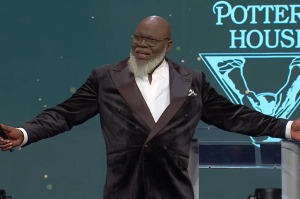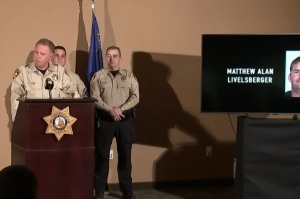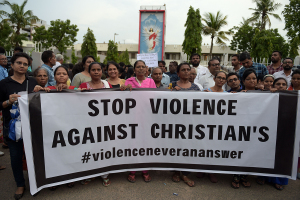Is Plan B Contraception or Abortion - Christian and Advocacy Groups Debate
U.S. Health and Human Services Secretary Kathleen Sebelius ignored recommendations from the Food and Drug Administration (FDA) on Wednesday and banned girls under the age of 17 from purchasing Plan B One-Step, otherwise known as the "morning after pill," in pharmacies without a prescription.
The decision surprised people on both sides of the issue as Sebelius is a staunch pro-choice supporter and has taken heat from conservative groups about her stance on contraception and abortion.
Ultimately, Sebelius decided girls under 17 are too young to make informed contraceptive decisions.
"It is common knowledge that there are significant cognitive and behavioral differences between older adolescent girls and the youngest girls of reproductive age," Sebelius said in a statement.
"I do not believe enough data were presented to support the application to make Plan B One-Step available over-the-counter for all girls of reproductive age," the statement continued.
The pill's manufacturer, Teva Pharmaceuticals, had plans to begin selling the drug in stores by the end of the year.
"We commend the FDA for making the recommendation ... and we are disappointed that at this late date, the Department of Health and Human Services has come to a different conclusion," said a statement from Teva released on Wednesday afternoon.
The regulation renews a discussion regarding the legality and morality of Plan B's usage – and the use of contraception, generally – between advocacy, religious and political groups.
Women's groups are indignant about the decision, saying the ban on Plan B for teen girls violates the rights of women of all ages.
NOW President Terry O'Neill called the decision "a stunning betrayal of women" and urged the government to stop "playing politics with the lives of women and girls."
"What else can this be but politics?" said Cynthia Pearson, executive director of the National Women's Health Network, to The Associated Press. "It's not science. It's not medicine. It's not women's health."
The controversy stems from the long-held debate about when life begins.
Conservatives like Jeanne Monahan of the Family Research Group say that Plan B pill kills innocent lives.
"It's not a drug that prevents life; it's a drug that destroys life," Monahan told The Washington Post. "If we define life as beginning at fertilization or conception, then this drug can be an abortifacient."
The pill works by elevating a hormone called levenorgestrel. The hormone causes extra mucous to be released along the uterine wall, which prevents ovulation and fertilization if taken within 72 hours of unprotected intercourse.
Whether the mucous prevents sperm from fertilizing eggs, or whether the process takes a life, is the central debate.
Christian organization American Life League (ALL) claims the pill causes "the tiny baby boy or girl [to] die before he or she can actually attach to the lining of the uterus."
Such arguments with deeply rooted faith-based positions are unlikely to be compromised or resolved. But a debate about whether contraception prevents abortions is at hand in the Plan B decision.
According to the FDA, "54 percent of all abortions happen despite contraception use." The apparent inconsistency in birth control only adds fuel to the fires of each side of the debate.
Woman's rights groups say the choice to use Plan B – and access to the pill – is essential to avoiding unwanted pregnancies if contraception fails.
Pro-life groups say Plan B is not a contraceptive, but rather that it is abortion.
“Not only are the drugs dangerous for those who consume them, but the so-called emergency contraceptives can kill an already-conceived human person in its earliest stages," ALL said in a statement.
Women under the age of 17 can still receive the Plan B pill through a prescription, and advocacy groups like Planned Parenthood offer contraceptive and post-fertilization medication.





























